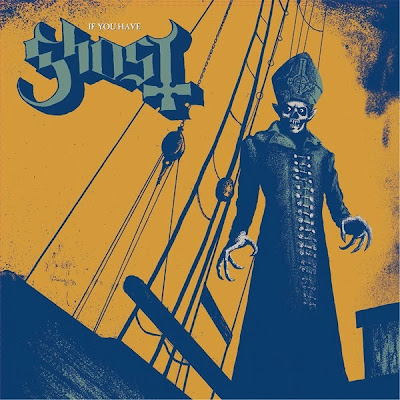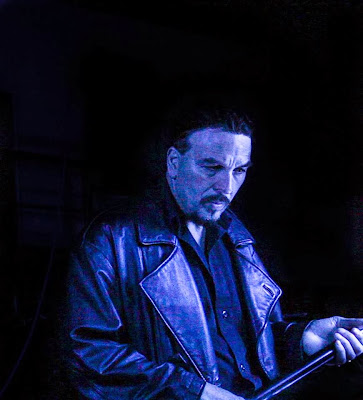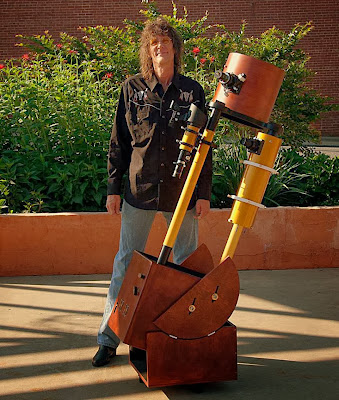Circus Life is a good life, and rock 'n' roll is alive and well in the hands of Dan Baird and Homemade Sin. If this album isn't enough to get this bunch back on American soil in 2014, I might be applying for resident alien status across the puddle.
Let me clarify the lineup for those perhaps not in the know - Dan Baird and Homemade Sin is three quarters Georgia Satellites and one quarter Warner Hodges (Jason and The Scorchers). And they're so good I almost want to cry. Baird preaches the sermon of rock as well as any poet that ever attempted, and the band is rarely less than picture perfect. You could be excused for not knowing that this bunch has never stopped performing in one guise, or another since they started back in the '80s, but there will be no excuse for you to not purchase, listen to, and adore this record.
Sonically, this album is wonderful - you never wonder what Baird is singing about, the harmonies well placed and Stonesy, the rhythm section of drummer Mauro Magellan and bassist Keith Christopher sounds like they've known each other forever (which they have), and then there's the guitars. The guitars are not only well played, they also sound like a masterclass in tone - Baird and Hodges are a great team. Listening to the pair's rhythm tracks reveals all - they're playing the same song, the same chords, but the differences in nuance and style are beautifully distinct. Almost always panned left and right, there's a great education in rock there alone. But then there's the songs....
I'm given to hyperbole, but I'm not given to being wrong (well, not about rock 'n' roll, anyway), and I am here to tell you that Dan Baird is as great a writer of that thing known as a rock 'n' roll song as anyone on the planet. There's not a much harder thing to do than to write a straight up rock 'n' roll song in the late year of our Lord in 2013, but Baird makes it sound simple as he avoids cliche while writing instant cliches every step of the way. There's gold in these words and chords.
The first pinched, gritty chords that pop out of the speakers that announce Fall Apart On Me, and it's another of Baird's stock-in-trade - the seriously tongue-in-cheek look on the relationships between men and women. I'd love to see Baird's record collection - whatever he got fed as a youth must have been the perfect diet for the writer as a young rocker. The rhythm that Warner Hodges plays against Baird's is a beautiful piece of whip-crack syncopation, and every guitar player should check this as a fine way to measure one's ability to keep time. I'll say it again and again, but this bunch gets it right. I haven't heard two guitarists joust so well since Webb Wilder and Donny Roberts told Chuck Berry the news in the nineties to all too darned many deaf ears. Check out the final 24 seconds of this tune for a dose of pure bliss.
Stepping it up to a double time snare snapper, Little Darlin' is steeped in sweet country harmonies, and when the guitar solos start it's time to hit the woodshed - these licks sound as smooth as silk and sweet as honey, but they're knucklebusters of the best type.
All The Same is another sad, sad song about the travesties of love, and if Chuck Berry had known it would end up here, he'd smile from ear to ear. Ear candy - there are more calories of candy here than I've heard on an album all year - nothing here is rocket science, but I'll be damned if all the fake rock country guitar players in Nashville get anywhere near this high water mark. No, this is the real deal, and this is where the true religion can be found.
As of today, and mind you, I'm fickle when it comes to these matters - Thousand Little Pieces is the best song I've heard this year. I've been revisiting the live YouTube clip incessantly since I found it, and this seven minute forty-two second cut is even better yet. Slow stuff it tough - you have to be accurate, and your heart must be in the right place. When Hodges kicks into his sweetly sustained solo, he achieves guitar nirvana, then Baird kills me with what may be his best verse yet:
"We had it all,
pretty as a picture.
Just like the one,
you left hanging in the hall.
A better man,I don't know exactly how George Jones felt about rock 'n' roll, but I'm sure he would have loved this.
would find hope in the scriptures.
But Jesus wept,
is all I can recall."
 |
| Photo by Jos Westenberg |
Warner Hodges playing is great across the album, but his soloing on Thousand Little Pieces is the stuff greatness is made of - he goes for the throat with an almost speaker exploding distorted tone, then he backs down and makes you cry, only to wind it all up again and deliver hope in a song that may otherwise just be too damned sad. There's redemption to be found in those notes, and that was always the point. Hodges stands accused of having perfect tone and unquestionable note selection.
A goddamned barn burner, it is.
Where'm I Gonna Lay My Head has a hard act to follow, but it has more going for it than the most creative use of an apostrophe this year, as the band dives right back into the rock. Much of this reminds me of The Band, in that there's no attempt to be progressive, psychedelic, or innovative, just an attempt to write and play the music as best as it can be. Hodges is on fire again, and his stinging and slinging soloing sizzles. The beauty of this pair is that they seemingly have no sense of anything but musical camaraderie - there's never a minute of anything but rock 'n' roll glory.
Stonesy syncopation is a tough order, and Break Down And Cry reminds me of the simpatico relationship I hear on Keith's solo records with Waddy Wachtel - the rhythms here are sublime and they make me dance in my chair as I type. And I like that. The arrangement includes some extremely tasty Hammond organ and some very pop harmonies on the chorus that keeps the track from ever becoming run of the mill. Masterful.
Bassist Keith Christopher steps up to do a lead vocal, and we don't miss a step. This band has been working for a few years to loving crowds around the UK and Europe, and it's quite apparent that they know one another like the back's of their respective hands - Think It's Time is another new type of arrangement, introducing some nice plucked harmonic keyboards under the chorus that add the perfect pop sweetness. Another winner, but you knew I was going to say that, right?
 |
| Photo by Jos Westenberg |
Mauro Magellan earns his place in the percussion hall of fame with his work on Baby This - not many drummers can 'own' a song, but it can happen, and Magellan does it here with not just stellar stick work, but tons of catchy and chugging, percolating accessory work. Baird has his wit pen out again, and his writing is pure poetry.
The first time I spun this disc, I thought to myself, 'Have they really done this? Have they really recorded a whole album of fairly straight up, soulful rock 'n' roll without covering their own tracks even once?' They have, and the chorus of Long Way Down proves the point marvelously. Hodges is a master of the chordal solo, slurring notes and harmonizing with himself as he works his way around the solos and fills. The record is everything that's wrong with Nashville, and everything that's right with rock. Hell no, rock ain't near dead.
Dan Baird knocks out great rockers like clockwork - every one of us would love to write one rocker that would compare to Outlivin', and he's written an album full. There's an unholy union of The Byrds and The Dictators on this one. Chimey descents of guitar harmonies that evoke memories of And Your Bird Can Sing are always a pleasure, and they fit this number like a glove. I can't write as well as they play, so you are just going to have to buy this record and figure it out for yourself.
Face Of Love is another jangler, rocking melodically down the pike. Starting and stopping and swaggering, all at the same time - most bands could never do this without falling upon their respective arses, but Dan Baird and Homemade Sin toss it off like nobody's business. More arrangement wizardry as clever choices abound - before Hodges goes into yet another 'here's how it's supposed to be done' solo, they throw in a little step down that only lasts about five seconds but contains more musical intelligence than you can believe.
Wear And Tear wraps up the party, and it's a sweet piece of power pop that reminds me that The Flamin' Groovies are back on the scene, and if they hadn't reunited, I'd have been just fine with this in their stead. This album delivers on promises I've been waiting on since The Small Faces dissolved all those decades ago.
 |
| Photo by Jos Westenberg |
Circus Life may be the perfect album of 2013 - it makes not a single misstep, and every step of the way it has thrilled me to the bone. Thanksgiving week is perfect for its release, as it has me giving thanks for rock 'n' roll this great. I'm soon starting a radio show called Rock Ain't Near Dead down in Los Angeles - it's about where rock came from, where it's at, and where it's going, and I am going to have to move heaven and earth to get someone from this bunch to guest and explain just how they do it. Rock Ain't Near Dead, and this record proves it in spades. I am now calling it the best of 2013. I didn't see that coming, but there you have it.






















































